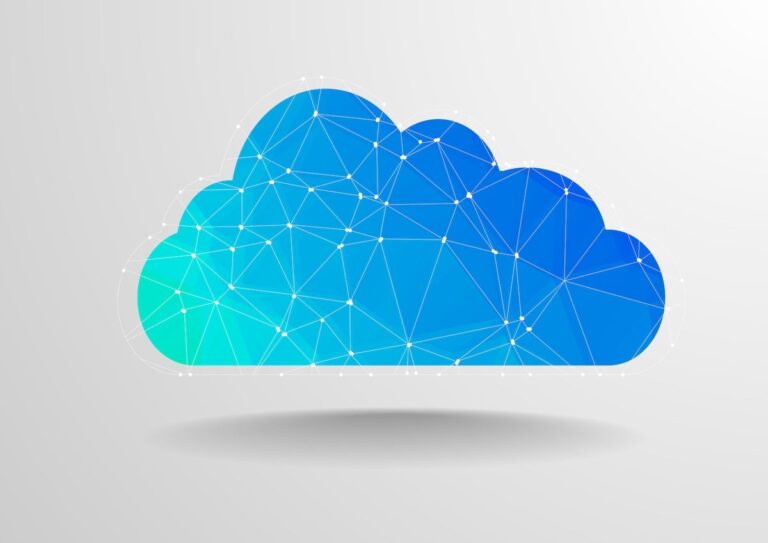At its simplest, cloud computing means moving the services a company relies on to shared or managed servers outside the organization’s firewall. This saves individuals and groups from investing in on-premises infrastructure, gives their data mobility, and grants access to the latest technologies.
SEE: What Is the Difference between Cloud Computing and Virtualization? (TechRepublic)
Top 7 advantages of cloud computing
A potentially cheaper model
The cloud computing model offers a potentially cheaper way for businesses to stay organized and online. Your particular use case will determine the degree to which that’s true. Organizations don’t need to compare, shop for, and purchase physical infrastructure when they have a reliable cloud computing partner.
Although the prices for hard drives, solid-state drives, server racks, and other necessary items have fallen in recent years, cloud computing comes out on top in terms of cost outlays. It’s still less expensive in many cases to pay an ongoing subscription fee for access than to purchase and then maintain an in-house data-processing or warehousing apparatus.
A sensible way to scale
Running a business is challenging at the best of times. It’s also unpredictable, particularly amid worries of recession, inflation, war, and supply-chain disruptions.
One positive is the chance to scale at your own pace. Companies are wise to have their major movements plotted out three to five years in advance. Whether you want to grow aggressively, cautiously, or scale back during times of turmoil, cloud computing is a business asset you pay for only as and when you need it.
Access to next-gen technology
Cloud computing is about far more than online storage for files. Companies can rent access to next-generation technology they need to complete their tasks, and run programs on those platforms over the internet using the cloud.
Examples of some technology available as cloud platforms include AI and machine learning models, data analytics capabilities, and containerization. The stats look good, as analysts expect the cloud AI market to reach a value of $363.44 billion by 2030. The chance to build powerful machine learning and AI applications without first purchasing physical computing capacity is a powerful motivator and competitive playing-field leveler.
Protection from cyberattacks
By some estimates, small businesses are more likely to suffer a cyberattack than bigger corporations. This is because they may not have the backup and mitigation services that some bigger players have in their arsenals.
Conducting business in the cloud means having access to industry-standard data protection, firewalls, and automated 24/7 network monitoring. Not every organization can afford to retain that kind of IT talent and infrastructure in-house.
The ability to mobilize
It’s increasingly important for employees to be able to perform many compute-heavy tasks from wherever they happen to be. With work-life balance and telecommuting on everybody’s minds, data and workflow mobility via the cloud presents itself as a logical investment.
Contractors, salespeople, and field agents benefit from the convenience, and businesses appreciate the seamless organization and data exchange.
Simpler and less error-prone collaboration
An advantage closely related to mobility is collaboration. It’s one thing to take your platforms, services, and data mobile. It’s another challenge to reconcile all the data gathered by your company, organize it, and ensure there are no errors or duplicates.
Cloud services mean simpler and less error-prone collaboration between colleagues, departments, clients, customers, the sales floor, and the board of directors. There’s less time required to exchange data and draw meaningful conclusions from it, and everybody works from the same single source of truth.
Powerful predictive insights
Cloud computing has done more to deliver powerful predictive analytics to the masses than any other technology. Even when you don’t have the machines you need under your roof, somebody on the other side of the globe has computing capacity available for you to access for a reasonable fee.
Here’s what you can do with this computing capacity:
- Find trends in historical and current data.
- Make predictions about the market and competitors.
- Simulate the likely effects of potential business decisions.
- Automate essential processes.
- Have equipment and assets monitor their conditions and exchange machine telemetry.
- Study customer behavior and buying patterns to create more effective marketing campaigns or product strategies.
There’s almost no limit to the capabilities of advanced big-data analytics. You’re only limited by your creativity and the amount of computing capacity available to you.
SEE: Disadvantages of Virtualization in Cloud Computing (TechRepublic)
Cloud computing unlocks potential
The cloud itself presents opportunities bound only by your ambitions and imagination. It’s a deeply utilitarian tool by design, but the benefits provided by cloud computing have proven more than the sum of their parts.
If you wish to read more on this topic, there are plenty of cloud-related articles at TechRepublic here.
TechRepublic Premium also offers cloud-related glossaries, hiring kits, policies, and checklists to enhance the work of IT and HR departments.
This article was originally published in October 2022. It was updated by Antony Peyton in June 2025.

